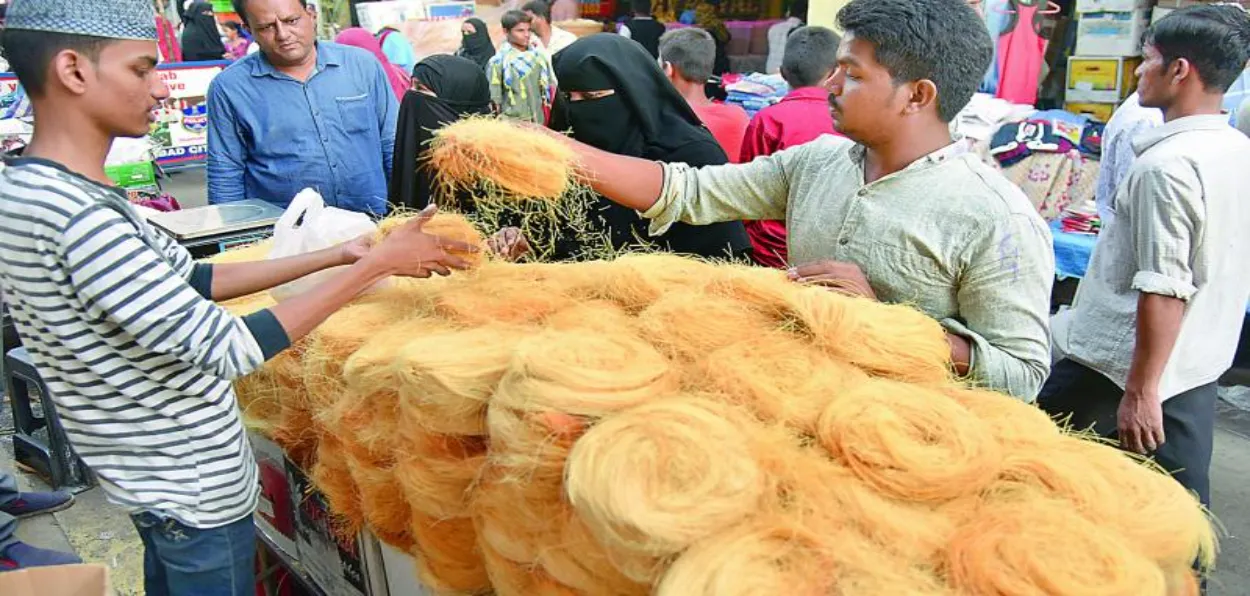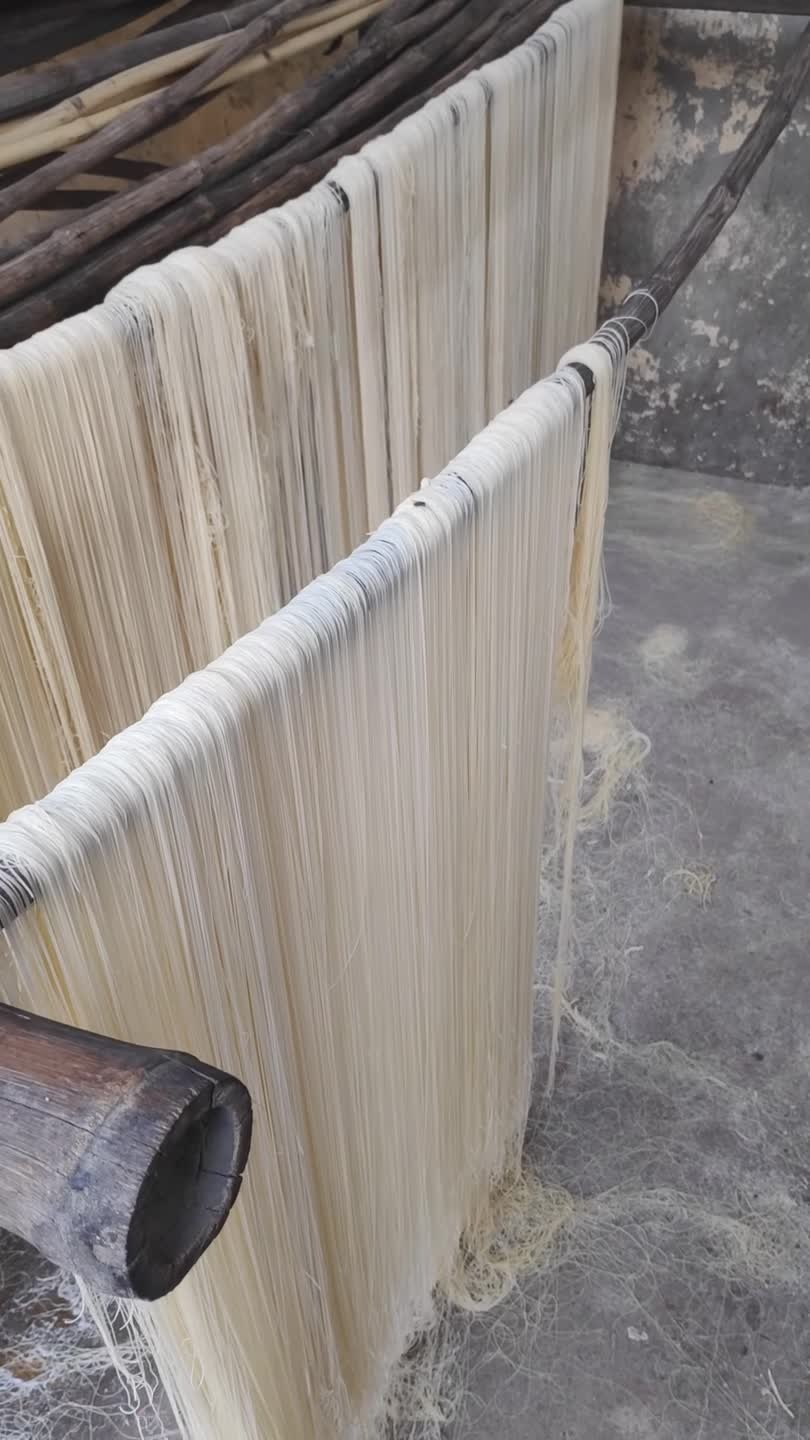
Ratna G Chotrani/Ratna Chotrani
Snippets of food wisdom have been woven into culture for thousands of years giving cities and towns its distinct heritage food. What attracts us to Hyderabadi food is the tradition and history behind it and one such ingredient is Seviyans which form an integral part of Indian festivities.
In Hyderabad, the Ramazan platter often comprises food, made of recipes handed down from generations.
Making Seviyan is one such Art. Hyderabad’s Chaderghat Imliban Yakutpura and Dabeerpura regions continue to enchant and have a magic of tearing punching and smashing the dough to a smooth finish and later making fine strands of vermicelli that are hung to dry on ropes tied from one end to another.
The deft finger sweeping to transform the shapeless dough into graceful strands called Seviyaan is a treat to the eyes.
As one crosses the Musi River towards Chaderghat one can see a common sight of curtains made of fine strands of Seviyaan. Several families in the region who continue with the tradition of making hand-made Seviyans reside here and they have been into the art of making this raw material for a delicious desert for generations. Seviyan making is like a heirloom, inherited and cherished.
 Strands of vermicelli kept for sun-drying
Strands of vermicelli kept for sun-drying
Handmade Seviyans have huge effort involved as a lot of strength is required to knead and pull the dough and stretch it out to finer strands which are then left to dry. Upon drying these are then rolled out, packaged, and ready to be cooked.
Sadly handmade Seviyans are slowly fading out with the rolls of these delicious long strands now being made much faster by machines. With Eid just a few weeks away Seviyaan makers have become busier than ever before.
Woefully a few families continue with the tradition of making handmade Seviyaans while many opt for the machine.
Razia Begum says the process of making vermicelli begins months before Ramzan. “Seviyan making by hand is not an easy task A lot of strength is required to pull the dough and stretch it out to finer strands. The hard labour involved with the making of vermicelli dissuades youngsters from pursuing their ancestral vocation.
Anwar Khan says, “It's a time-consuming process and purely depends on weather conditions.” He supplies hundreds of kilograms of Seviyan to traders in different markets all over the state. Afzalganj, and Begumbazaar are markets that are lined up with this sweet dessert ingredient during the festival.
Sher Khurma - a deseret made of Seviyan
He says making handmade Seviyan is giving a tough fight to the machine-made varieties. Vermicelli is made out of Maida. The dough is then kneaded thoroughly and covered with a sheet to ensure it does not dry The Khan family then takes small portions of the dough kneads it to a smooth finish and rolls them out into fine strands.
Anwar Khan says machine-made ones can never replace handmade ones. He believes the taste of the handmade Seviyaan is distinct and can never be replaced by machine-made varieties.
Anwar Khan’s grandfather worked in the kitchens of Nizam where he made Seviyan for the royal guests His Seviyaans are different as he adds salt to them while kneading the dough taking the Seviyan to another level and amplifying the taste.
ALSO READ: Moinuddin's is first and last Radio repair shop in Hyderabad
He says traders pay advance months ahead as requirements are huge and the process goes on until the festival of Ramzan. Sheer Korma made out of hand-made Seviyans is delicious. It is worthy of every festivity and celebration.
